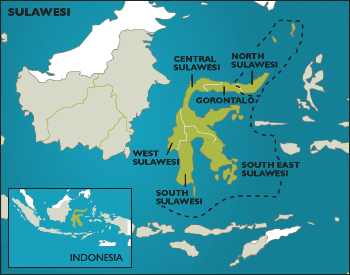- Home
- About
- Campaigns
- Regions
- Themes
- Agrofuels
- Climate justice
- Coastal communities and fisheries
- Disasters
- Economy & debt
- Energy
- Foreign investment
- Forests & forest fires
- Human rights
- Indigenous Peoples
- International Financial Institutions
- Land and food security
- Laws & regulations
- Mining, oil & gas
- Plantations
- Politics & democracy
- REDD
- Regional autonomy
- Transmigration
- Water and dams
- Women
- Publications
- Links
- Contact
Campaign
Theme
- Climate justice (6)
- Coastal communities and fisheries (24)
- Economy & debt (13)
- Energy (3)
- Foreign investment (47)
- Forests & forest fires (35)
- Human rights (33)
- Indigenous Peoples (32)
- International Financial Institutions (15)
- Land and food security (27)
- Laws & regulations (34)
- Mining, oil & gas (46)
- Plantations (14)
- Politics & democracy (9)
- REDD (1)
- Regional autonomy (11)
- Transmigration (4)
- Water and dams (5)
- Women (5)
Sulawesi

